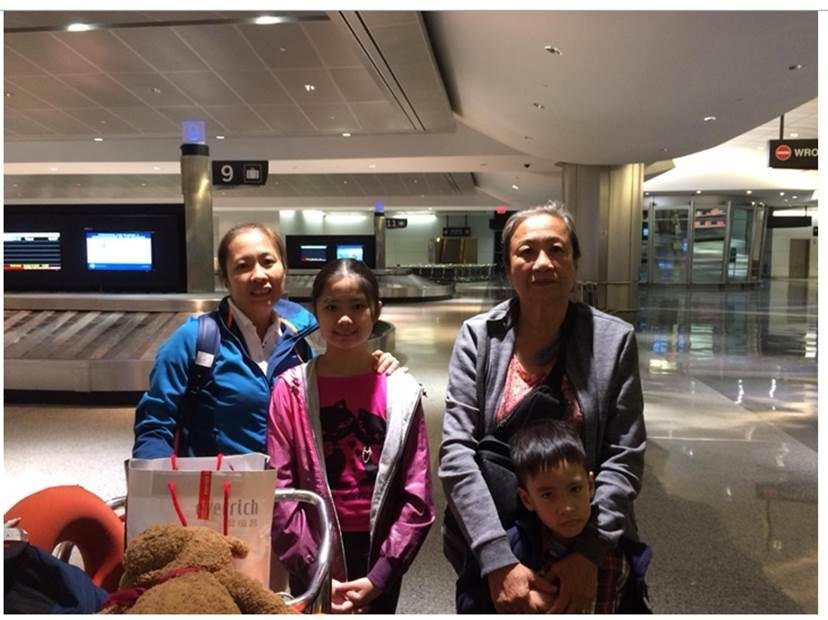Our impact in Asia
Me Nam reunited with her family at the airport (photo courtesy of Dan Lam Bao)
“I wish to thank you sincerely for your campaign to free me from the unjust law of lese majesty against me.” - Sulak Sivaraksa, prominent Thai academic.
The freedom of expression landscape in Asia and the Pacific continues to be marked by entrenched repression, political crackdowns, prosecution and long-term imprisonment. The failure to protect writers and journalists from reprisals for their writing has also contributed to a climate of fear and self-censorship.
The conviction of Reuters reporters Wa Lone and Kyaw Soe Oo represents a severe setback for democracy in Myanmar, and impunity is theme that resonates across Asia. Murders such as those of Cambodian scholar Kem Ley in 2016 and Indian epigraphist Dr Malleshappa Madivalappa Kalburgi in 2015, remain unresolved.
The impact of our solidarity work
2019
In August, Sri Lankan writer Shaktika Sathkumara was released on bail. We continue to call on the Sri Lankan Attorney Genereal to drop the ongoing investigation into Sathkumara.
Reuters journalists Wa Lone and Kyaw Soe Oo were released from jail in Myanmar in April.
2018
Blogger and government critic Nguyen Ngoc Nhu Quynh, aka Me Nâm ('Mother Mushroom'), was released into exile in Viet Nam in October.
The charges against Thai writer and activist Sulak Sivaraksa were dropped in January.
Chinese poet and PEN member Liu Xia was freed from unofficial house arrest in July.
For the Day of the Imprisoned Writer, PEN campaigned for the release of award-winning Bangladeshi photographer and writer, Shahidul Alam. The open letter of solidarity from acclaimed Indian writer Arundhati Roy received wide coverage around the globe, and Alam was granted bail shortly after.
Civil Society Programme impact
PEN Philippines have run training seminars for literature teachers aiming to address the current concerns around mother-language education and literature in the country. The centre was also invited to be on an advisory panel to create the 21st Century Philippine Canon, and will therefore ensure the inclusion of minority writers, minority languages and the minority work in the national conversation. The contribution from PEN Philippines was warmly received and supported by the National Commission because of its attempt, through the Civil Society project, to reach out to those outside Metro Manila.
PEN Philippines have gained an understanding and knowledge of free expression issues, in addition to confidence in their ability to articulate concerns. Their voice on freedom of expression issues have become increasingly credible and visible. PEN Centres in Malawi, Myanmar, Zambia, Philippines, and Sierra Leone are part of national coalitions, which work together to influence public opinion and policy.
PEN Myanmar has continued its advocacy efforts releasing a quarterly freedom of expression bulletin, and is working alongside international NGOs such as the Committee to Protect Journalists (CPJ), to repeal or amend specific pieces of legislation.

